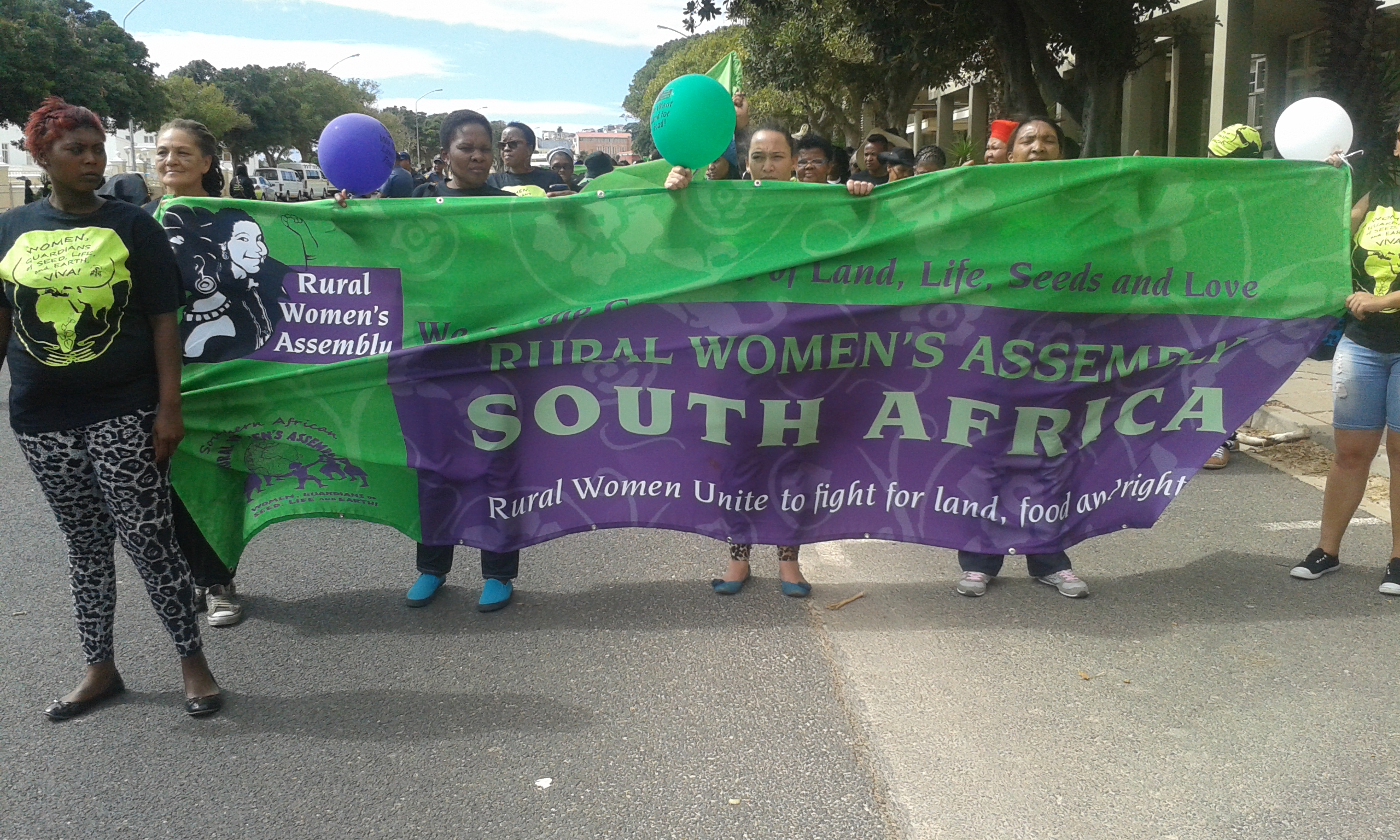Some 700 from rural communities around South Africa marched in the CBD on Saturday calling for equal access to land and housing. The women, who form part of the Rural Women’s Assembly (RWA), used Human Rights Day to draw attention to their plight.
“We want one woman, one hectare. South African needs to go back to those it belongs to,” said RWA member, Mercia Andrews.
The women marched in groups while escorted by the police to the Provincial Legislature’s to hand the premier of the Western Cape Helen Zille a memorandum of their demands. Demonstrators chanted down the road from the open field at District Six to the Provincial Legislature’s offices. Once they reached the offices they staged a sit-in where they congested in front of the offices sitting in the road screaming: “We want land! We want Zille! We want Cosatu!”
“We chose to start in District Six as it is part of the symbolism of our disposition.
“The land is our common struggle,” said Andrews
Speaking to the crowd, she said most rural women do not realise their human rights. They face escalating evictions from farms, insecurity, a lack of independent access to land and water, fishing rights and food insecurity. The majority of the South African population consists of women and most of these women shared that they live in extreme poverty working in exploitative conditions for a minimal wage, not earning enough to sustain themselves or their families.
“Women don’t have equal rights. Women suffer the brunt. They earn minimal wages and they have to put the food on the tables. They don’t have enough to do this. We want women to have equitable redress to land and land reform,” says co-ordinator of land and housing reform Carmen Louw.
These women are demanding better working conditions, access to land and to be treated with dignity.
“I want those in charge of the farms to give their employees better salaries and treat them properly with dignity,” stated Christine Mohobo.
“Our children are learning but they have no future. We earn so little that we don’t have money to put food on the table. We work ridiculously long hours from early in the morning until late at night for a minimal wage. I live in a shack which was destroyed. My children got sick because of it and I’m distraught as I worked hard to save up to build that shack,” said Monica Sampson.
Eliys Van Neel said access to land would empower women to be self-sustainable.
“We want to plant our vegetation and allow it to grow so our children can have a future. We still live under white supremacy where white people own most of the land and we want our land,” said Van Neel.
“My daughter’s boss is white. He swears at her and treats her badly,” added Martha Neel.
“It is very hard living on the farm. There is no money for warm water or food and we work long hours,” bemoaned Theresa Baatjies.
These women play a vital role in food production and the economies of their communities, said RWA members. Although agriculture is one of the pillars of the Western Cape economy, farm workers are among the most food insecure in the province.
“Our memorandum states that we have not had land and we would like land. Land is food and we need it. So we are saying most of South Africans do not have access to their basic rights…a matter we need to speak out on Human Rights Day,” says Andrews. VOC (Nailah Cornelissen)









 WhatsApp us
WhatsApp us 

